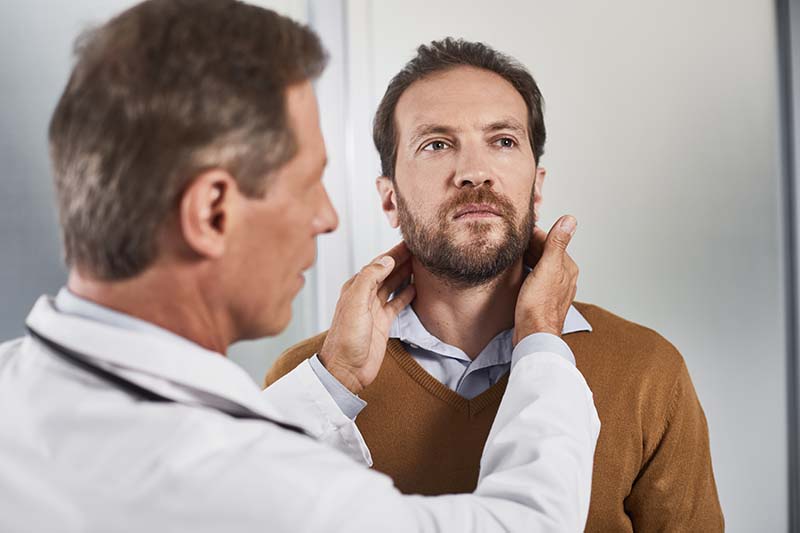Non-Hodgkin Lymphoma Symptoms & Risk Factors
Lymphoma is a broad term for cancer that begins in cells of the lymphatic system— a network of tissues and organs that rid the body of toxins and waste. In addition, the lymphatic system transports infection-fighting white blood cells through the body.
In this section, we will cover the signs and symptoms, as well as the risk factors associated with lymphoma. You can also request a consultation with one of the blood cancer specialists at Rocky Mountain Cancer Centers (RMCC) to ask questions about your individual situation.
Signs & Symptoms of Non-Hodgkin Lymphoma
While some people with lymphoma will experience obvious signs of the disease, others won’t notice any changes at all. However, the more you can recognize the symptoms of lymphoma, the better you can improve your chances of receiving a timely diagnosis and prompt treatment.- Painless swelling of lymph nodes in your neck, armpits, or groin
- Unexplained fatigue
- Fever without an obvious reason (ie. viral infection)
- Night sweats
- Shortness of breath
- Unexplained weight loss
- Itchy skin
Keep in mind that these symptoms do not necessarily mean that cancer is present. Regardless, if you notice one or more of these signs or symptoms, or anything unusual, it is important to see your doctor immediately so the cause can be found and treated, if needed.
Lymphoma Risk Factors
Often times, people diagnosed with lymphoma don’t have any obvious risk factors. And many people who have risk factors for the disease never develop it. Factors that can increase the risk of lymphoma include:
Viruses such as Epstein-Barr virus (EBV) infection/mononucleosis, T-cell lymphotropic virus (HTLV-1), and Human herpesvirus 8 (HHV-8) can directly affect the DNA of lymphocytes, helping to transform them into cancer cells.
Some types of lymphoma are more common in young adults, while others are most often diagnosed in people over the age of 55.
Males are slightly more likely to develop lymphoma than are females.
White males are more likely than males of African American and Asian American descent to develop lymphoma in the United States.
Lymphoma is more commonly seen in people with immune system diseases or in people who take drugs that suppress their immune system.
Rheumatoid arthritis, lupus, Sjogren disease, and celiac disease are some autoimmune diseases that have been linked with an increased risk of certain lymphomas.
People who are overweight or obese or those who eat a diet high in fat and meats may be at a higher risk for certain lymphomas.
If you have been diagnosed with lymphoma, know that Rocky Mountain Cancer Centers is committed to helping you battle the disease by providing you access to advanced, holistic care in a community-based setting. Together, we will develop a personalized treatment plan that will cover all your needs. Our lymphoma specialists are located throughout Colorado including Denver, Colorado Springs, Boulder, Aurora, Englewood, Lakewood, Longmont, Pueblo, and Steamboat Springs.


